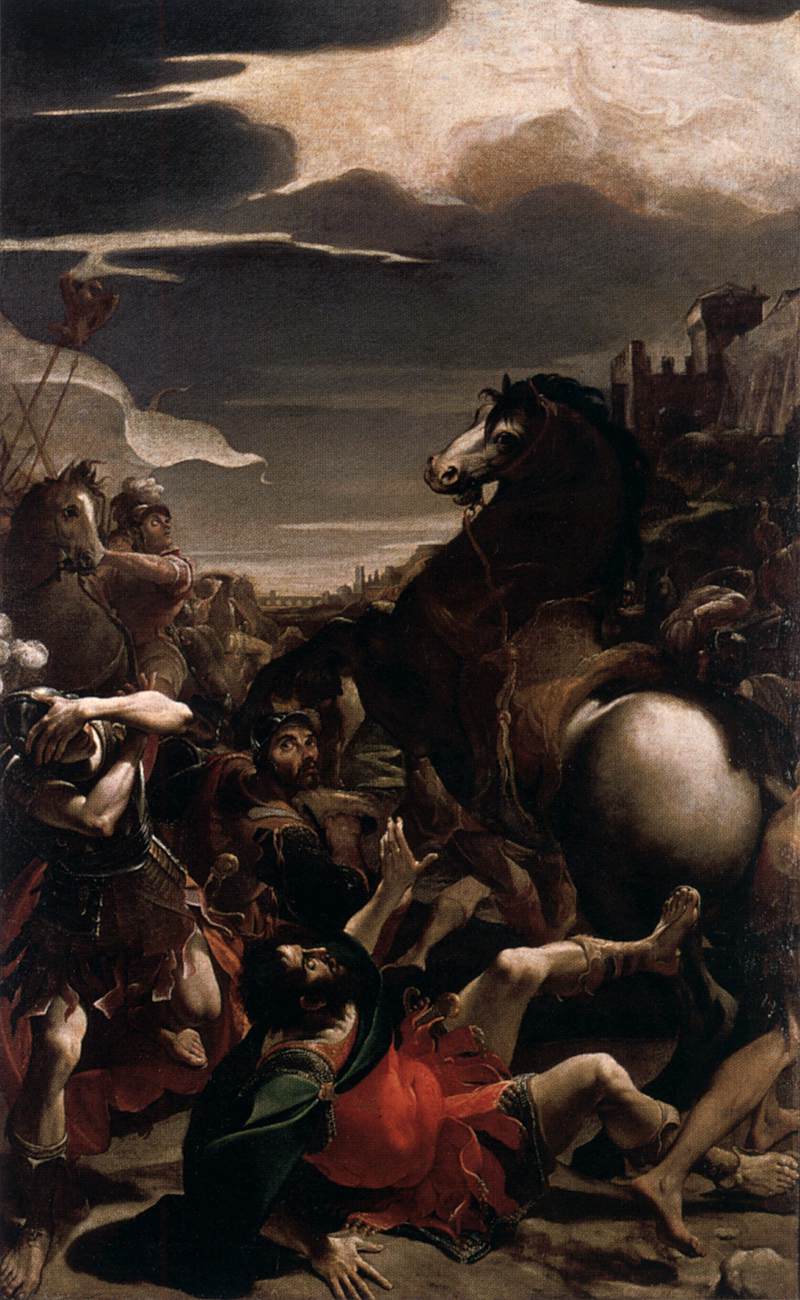Description
The painting "The Conversion of St Paul" by Italian artist Lodovico Carracci is an impressive work that captures the dramatic conversion of the Apostle Paul. With an original size of 278 x 170 cm, this masterpiece is one of the largest and most outstanding in the collection of the National Gallery in London.
Carracci's artistic style is clearly visible in this painting, as he uses a detailed, realistic painting technique that emphasizes the anatomical details and texture of objects. The painting's composition is equally impressive, with a masterful use of space and perspective to create a sense of depth and movement.
Color also plays an important role in this work, with the use of warm and bright tones to highlight the figure of Saint Paul and the rays of divine light that fall on him. The use of color also helps create an atmosphere of mysticism and spirituality in the painting.
The history of the painting is equally fascinating, as it was commissioned by Cardinal Odoardo Farnese in the 17th century and was originally intended to be part of a series of paintings for the church of San Paolo fuori le Mura in Rome. However, due to its large size, the painting was deemed too large for the church and was eventually acquired by the National Gallery in London in the 19th century.
There are some little-known aspects of this painting that are also interesting. For example, it is believed that Carracci used his own face as a model for the figure of Saint Paul, and the figure of the horse in the painting is also said to have been inspired by a horse that Carracci saw in a carriage race in Rome.
In short, Lodovico Carracci's "The Conversion of St Paul" is a stunning painting that combines a detailed, realistic art style with masterful composition and brilliant use of color. The painting's history and little-known aspects also make it even more fascinating and intriguing for art and history lovers.

